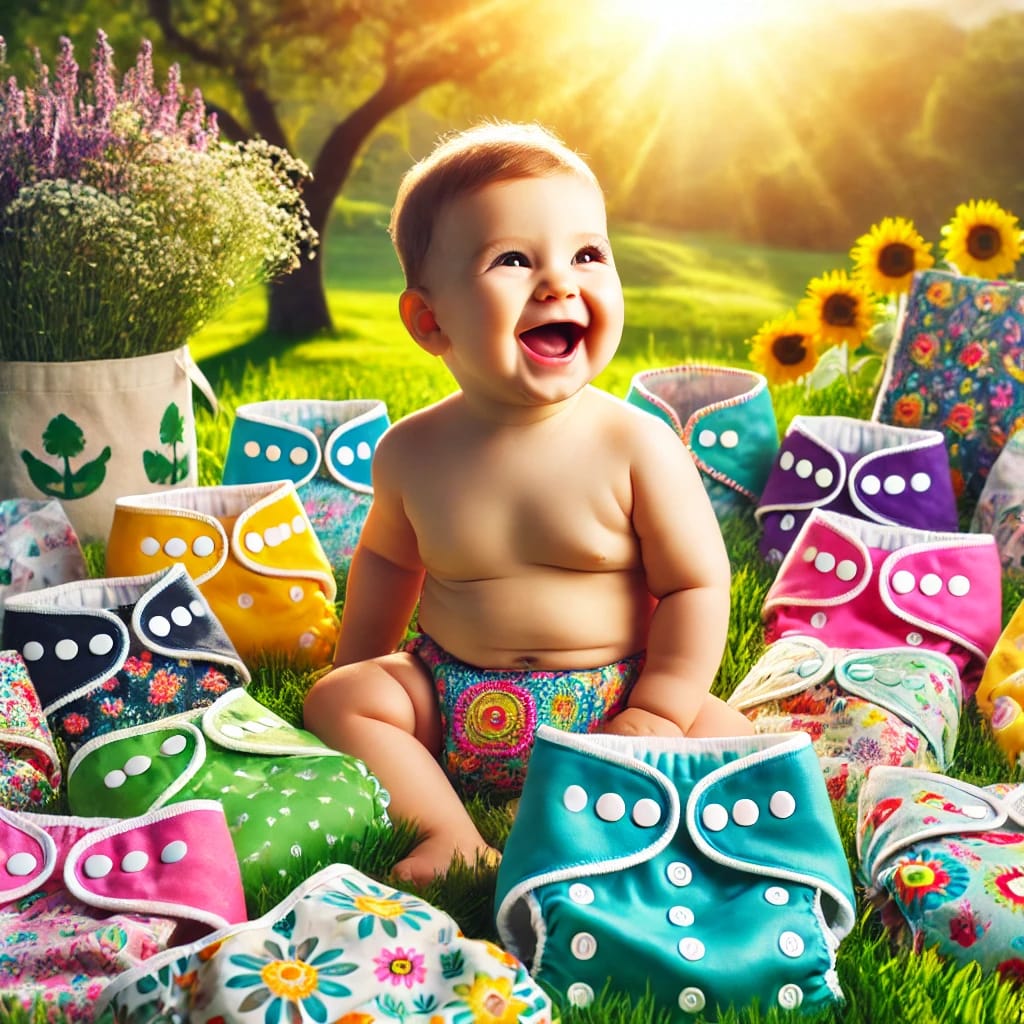
The Benefits of Washable Products for Children: Let's Debunk False Myths and Discover the Advantages
Cloth baby products, such as diapers, are gaining popularity due to their environmental and economic benefits. However, there are still many misconceptions about cloth diapers in terms of hygiene and convenience. In this article, we explore why cloth diapers are a better choice and debunk some popular myths, using real data and studies.
Despite popular belief, cloth diapers are an eco-friendly, economical, and safe choice for babies. In addition to drastically reducing environmental impact, they limit exposure to chemicals found in disposable diapers. While disposable diapers may seem more convenient or hygienic, their long shelf life and the chemicals used in manufacturing raise concerns about their composition and environmental impact.
Choosing washable diapers means taking care of the planet and the health of your children, opting for a sustainable and safe solution 🌍👶.
-
Reducing environmental impact:
An average child uses 5,000-7,000 disposable diapers in the first 2-3 years of life, generating about 1 ton of waste. These diapers end up in landfills and can take up to 500 years to decompose.
Washable nappies, on the other hand, can be reused for hundreds of washes, significantly reducing the amount of waste. The UK Environment Agency has estimated that using washable nappies can reduce environmental impact by up to 40%, especially when good washing practices are adopted, such as low-temperature cycles and environmentally friendly detergents.
-
Components: natural and synthetic materials:
Cloth diapers are made with an absorbent inner layer made of natural materials, such as cotton, bamboo or hemp, but also with a waterproof outer layer made of PUL (polyurethane laminate). This synthetic layer provides protection against leaks, ensuring functionality and comfort. Despite the presence of synthetic components, cloth diapers remain much more environmentally friendly than disposable products.
-
Chemicals in disposable diapers:
Although disposable diapers are considered "hygienic", they actually contain several chemicals that can be potentially harmful to your baby's health. A study published by ANSES (French Agency for Health Safety)** in 2019** found that disposable diapers contain toxic substances such as dioxins, furans and volatile organic compounds, as well as pesticide residues and glyphosate. These substances, even if present in small quantities, can accumulate and come into contact with your baby's delicate skin for long periods.
In addition, disposable diapers often contain superabsorbent gels (synthetic polymers) that retain liquids, but can irritate the skin or cause allergic reactions. The health risk is underestimated, since these chemicals, although legal within permitted limits, remain in direct contact with newborns.
-
Hygiene and storage of disposable diapers:
Another aspect that is often overlooked is the storage and transportation process of disposable diapers. Although considered “hygienic” because they are sealed and disposable, these products are stored and transported in warehouses or sheds where the environment is not always controlled in terms of humidity, dust or other pollutants. During the long period of storage, diapers can come into contact with contaminants that compromise their hygienic safety.
Washable diapers, on the other hand, offer the possibility of being washed and sanitized at home with detergents chosen by the parents, reducing the risk of exposure to external substances.
-
Economic savings:
In addition to the health and environmental benefits, cloth diapers are a much more economical choice. A family can spend between €1,500 and €2,000 on disposable diapers in the first two years of a child's life. In comparison, purchasing and washing cloth diapers costs around €300-500 over the same period, a potential saving of 75%.
-
Child health:
Cloth diapers are often made of natural materials, such as cotton or bamboo, which are breathable and reduce the risk of irritation or dermatitis compared to the synthetic materials of disposable diapers. Prolonged contact with the chemicals in disposable diapers has been linked to an increased risk of allergic reactions and dermatitis.
Despite popular belief, cloth diapers are an eco-friendly, economical, and safe choice for babies. In addition to drastically reducing environmental impact, they limit exposure to chemicals found in disposable diapers. While disposable diapers may seem more convenient or hygienic, their long shelf life and the chemicals used in manufacturing raise concerns about their composition and environmental impact.
Choosing washable diapers means taking care of the planet and the health of your children, opting for a sustainable and safe solution 🌍👶.